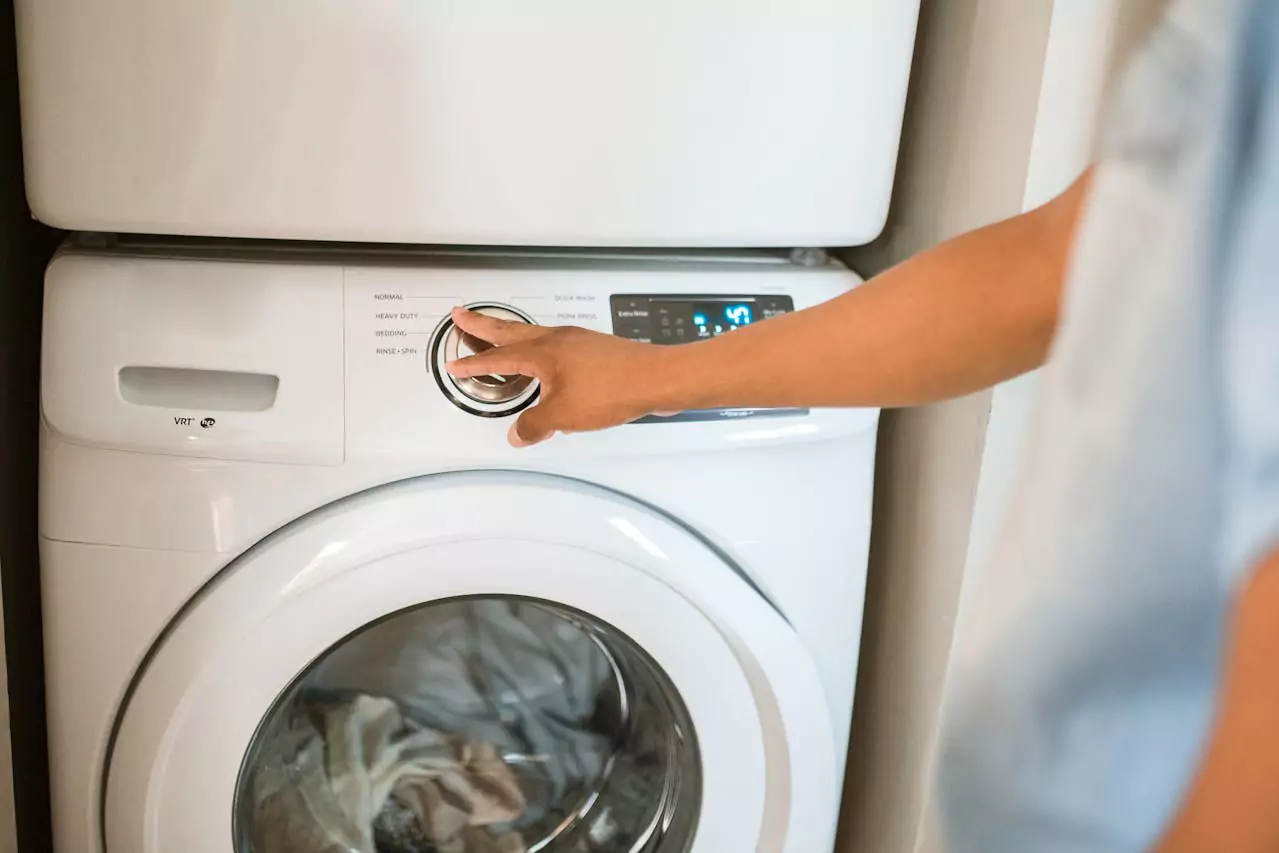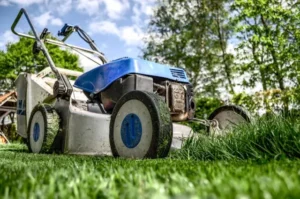Now Reading: Best Places to Donate a Washer and Dryer
- 01
Best Places to Donate a Washer and Dryer
- Home
- Home Appliances
- Laundry & Cleaning
- Best Places to Donate a Washer and Dryer
Best Places to Donate a Washer and Dryer
![]() Anne MaddisonHome Appliances, Laundry & CleaningAugust 13, 2025124 Views
Anne MaddisonHome Appliances, Laundry & CleaningAugust 13, 2025124 Views

If you have recently upgraded your laundry setup, you might be looking at your old washer and dryer and wondering what to do with them. Selling is one option, but donating them can make a bigger difference than you might think. For many families, buying a washer and dryer is not just expensive, it is completely out of reach. A working set can save them hours at the laundromat every week and hundreds of dollars a year.
Donating your appliances also keeps them out of landfills, which is good news for the environment. Instead of taking up space as scrap, they can keep working for years in a new home. On top of that, some donations qualify for tax deductions, which can be a nice bonus.
In this guide, we will walk through the best places to donate a washer and dryer, how to prepare them for their new owners, and what to know before you hand them over. Whether you want to help a local family or support a national charity, you will find plenty of good options here.
If you’re looking for tips to organize your laundry area, check out our guide on how to stack your washer and dryer correctly.
Why Donate a Washer and Dryer Instead of Selling or Scrapping
Getting rid of a washer and dryer might seem as simple as putting them up for sale or hauling them to the scrap yard. But choosing to donate can have a much bigger impact.
Help the environment by reducing landfill waste
Appliances are big, heavy, and full of materials that do not break down quickly. When they end up in a landfill, they take up space and can even release harmful substances over time. By donating a working set, you keep it in use for years longer, which means less waste in the long run.
Support low-income families and nonprofit organizations
For some families, a washer and dryer are more than a convenience. They are a lifeline. Donating yours could save someone countless trips to the laundromat and the money that comes with it. Many nonprofit organizations also use donated appliances directly in their programs or sell them at thrift stores to fund community work.
Take advantage of possible tax deductions
When you donate to a registered charity, you may be able to claim the fair market value of the appliances as a tax deduction. This is a simple way to give back while also getting a little back at tax time.
Feel good about giving your appliances a second life
There is something satisfying about knowing your old washer and dryer will keep helping someone else instead of gathering dust or rust. Your donation can make life easier for another household and give you peace of mind that you made a difference.
Top Places to Donate a Washer and Dryer
If you are wondering where to donate a washer and dryer, there are many options to choose from. You can give to large national charities, local groups, or even use online platforms to find someone who needs your appliances. Let’s explore some of the best places to consider.
1. National Charities and Nonprofits
When deciding where to donate a washer and dryer, national charities and nonprofits are a great place to start. These organizations have established programs to accept, refurbish, and redistribute appliances to families and communities in need. Here are some of the top national options:
Habitat for Humanity ReStores
Habitat for Humanity ReStores operate across many cities and serve as resale outlets for donated building materials, furniture, and appliances. The money raised supports Habitat’s mission to build affordable housing for low-income families. Many ReStores accept washers and dryers that are in good working condition. Some locations even provide free pickup services, which can be very convenient if you don’t have the means to transport large appliances. Before donating, call your local ReStore to confirm their donation guidelines and schedule a pickup or drop-off.
Salvation Army
The Salvation Army is well known for providing a range of social services, including assistance to families experiencing financial hardship. Many Salvation Army thrift stores accept large appliances like washers and dryers, especially if they are clean and functional. However, policies can vary widely by location, so it is important to contact your nearest Salvation Army store or donation center to find out whether they currently accept appliances, their condition requirements, and if pickup services are available.
Goodwill
Goodwill is one of the largest nonprofit organizations for donated goods. While many Goodwill stores focus on clothing and smaller household items, not all locations accept large appliances such as washers and dryers. Some stores have the space and staff to handle appliance donations, while others do not. It’s a good idea to reach out to your local Goodwill to ask about their appliance donation policies. If they cannot accept your washer and dryer, they might be able to recommend other nearby organizations or donation centers.
2. Local Organizations and Community Centers
In addition to large national charities, many local groups play a vital role in connecting donated washers and dryers to families who need them most. These organizations often have close ties to the community, making your donation more personal and impactful.
Churches, shelters, and food banks
Many churches and local shelters accept appliance donations or know families who are struggling to afford basic household essentials. Food banks sometimes work alongside these groups and can help distribute appliances to people they serve. These organizations often have programs focused on helping low-income households improve their living conditions. By donating to a local church or shelter, you may be helping a family right in your own neighborhood.
Refugee resettlement programs
Refugee resettlement agencies help families starting new lives in your area. These programs often provide essential household items, including washers and dryers, to refugees who arrive with very few possessions. Donating to these organizations ensures your appliances go to people rebuilding their homes and lives.
Senior centers and low-income housing support groups
Seniors living alone or on fixed incomes sometimes struggle with the costs of maintaining or replacing appliances. Senior centers and housing support organizations often have networks to distribute donated washers and dryers to older adults who could benefit from them.
If you want to support your local community directly, reaching out to these groups can be a meaningful way to give your washer and dryer a new home.
3. Online Platforms for Giving Away Appliances
If you prefer to donate your washer and dryer directly to someone in your local area, online platforms offer easy and flexible options. These websites connect donors with people who need appliances, often at no cost to either party.
Freecycle
Freecycle is a global network of local groups where members give away items for free to others in their community. You can create a listing for your washer and dryer and connect with someone nearby who is looking for exactly what you have. It’s a simple way to find a good home for your appliances without any fees or middlemen.
Facebook Marketplace “free” section
Facebook Marketplace includes a section for free items where users list things they want to give away. Posting your washer and dryer there lets you reach neighbors who might not otherwise find your donation. The built-in messaging system makes communication easy and quick.
Craigslist “free” listings
Craigslist is another popular platform where you can post free listings for your appliances. It allows you to reach a wide local audience and arrange pickup or drop-off details directly with the person interested in your washer and dryer.
Using these online options gives you control over who receives your appliances and can make donating faster and more personal. Just be sure to follow safety tips when meeting strangers and arrange pickup times carefully.
How to Prepare Your Washer and Dryer for Donation
Before you donate your washer and dryer, taking a few simple steps can make the process smoother for both you and the new owners. Preparing your appliances properly also helps ensure they are safe and ready to use.
Clean inside and out
Start by giving your washer and dryer a good cleaning. Remove any leftover detergent, lint, or dirt inside the machines. Wipe down the exterior to make them look as fresh as possible. A clean appliance is more appealing and easier to use for the next person.
Check functionality and be honest about any issues
Test both machines to make sure they work well. If there are any problems, such as leaks, strange noises, or drying issues, make note of them. Being upfront about any defects will help avoid surprises for whoever receives the donation.
Gather manuals, cords, and hoses
If you still have the user manuals, include them with your donation. Also collect all necessary cords, hoses, and any accessories that came with the machines. Having everything together makes setup easier and less frustrating.
Take safety precautions when moving appliances
Washers and dryers are heavy and can be tricky to move. Use proper lifting techniques or get help to avoid injury. If the organization you donate to offers pickup services, ask if they handle the moving so you don’t have to worry about it.
Arranging Pickup or Drop-Off
Once your washer and dryer are ready, the next step is to figure out how to get them to the new owners. Many donation programs offer different options, from free pickup to drop-off locations.
Which organizations offer free pickup services
Some national charities, like Habitat for Humanity ReStores and Salvation Army, provide free pickup for large appliances. This is especially helpful if you don’t have a truck or can’t move heavy items on your own. Always call ahead to confirm if free pickup is available in your area and to schedule a convenient time.
Tips for scheduling pickups quickly
To speed up the pickup process, have all the details ready when you call. This includes the appliance model, condition, and your address. Being flexible with your schedule can also help you get the earliest possible pickup date.
How to transport appliances safely if dropping them off
If you choose to drop off the washer and dryer yourself, make sure to use proper equipment like dollies and straps. Secure the appliances well in your vehicle to prevent damage during transport. Enlist a friend or family member to help with lifting heavy items to avoid injury.
Pros and Cons of Donating to Large Charities vs Local Groups
When deciding where to donate your washer and dryer, it helps to know the advantages and disadvantages of giving to large charities compared to local organizations.
Large Charities
Big organizations like Habitat for Humanity and Salvation Army have a wide reach. They often offer streamlined donation processes and free pickup services, which make donating very convenient. However, they usually have stricter rules about the condition and types of appliances they accept. You may need to meet specific guidelines for your washer and dryer to be accepted.
Local Groups
Local churches, shelters, and community centers may accept donations more flexibly. They often have a direct connection to families in need, so your washer and dryer can make an immediate impact. The downside is these groups might not offer pickup services, so you may need to deliver the appliances yourself. Sometimes, they also have limited storage space, which can affect what they can accept.
Common Mistakes When Donating a Washer and Dryer
Donating a washer and dryer is a generous act, but there are some common mistakes to avoid to make sure your donation goes smoothly and helps the right people.
Not checking donation guidelines first
Before you donate, always check the specific rules of the charity or organization. Some places only accept appliances in working condition, while others have size or age limits. Knowing these details upfront saves time and frustration.
Donating appliances that are unsafe or beyond repair
Make sure your washer and dryer are safe to use. Donating broken or unsafe appliances can cause problems for the recipients and may lead to your donation being refused. If the machines need major repairs, it might be better to recycle them instead.
Forgetting to remove personal items from the machine
This might seem obvious, but double-check that you have removed all clothes, coins, or other items from the washer and dryer. You don’t want the next user to be surprised by lost belongings or damaged machines.
To learn how effective your home washer and dryer are at killing ticks, read our full guide.
FAQs About Donating Washers and Dryers
Can I donate a broken washer or dryer?
Most charities prefer appliances that are in good working condition. Some may accept broken items if they can repair them, but many will not. It’s best to check with the organization first. If the appliance is beyond repair, recycling might be a better option.
Are there donation tax write-offs for appliances?
Yes, if you donate to a registered charity, you may be able to claim a tax deduction for the fair market value of your washer and dryer. Make sure to get a receipt or donation acknowledgment for your records.
How old is too old to donate?
There is no strict age limit, but older appliances may be less efficient or more prone to problems. Many charities have guidelines on age and condition, so check with them before donating.
What if my area doesn’t have appliance donation centers?
If local donation centers are not available, consider using online platforms to give away your washer and dryer. Websites like Freecycle or local Facebook groups can connect you with someone nearby who needs appliances. You can also look into recycling programs to dispose of old units responsibly.
Final Thoughts
Donating your washer and dryer is a powerful way to help others, reduce waste, and even enjoy potential tax benefits. Whether you choose a large charity with free pickup services, a local organization that directly supports families, or an online platform to give your appliances away, your donation can make a real difference.
Now that you know the best places to donate, how to prepare your appliances, and what to avoid, there’s no better time to take action.
Your old washer and dryer could be a lifeline for someone in need—don’t let them go to waste. Start the donation process today and give your appliances a second chance to make life easier for another household.
Related Posts
Previous Post
Next Post
Previous Post
Next Post
Home SecurityJuly 30, 2025
Signs Your Home Router Might Be Hacked
Home AppliancesAugust 24, 2025
Are Home Air Conditioner Tune Ups Necessary
Home AppliancesAugust 23, 2025
Can Air Conditioning at Home Trigger Asthma?
- 04
Home SecurityJuly 30, 2025
Signs Your Home Router Might Be Hacked























